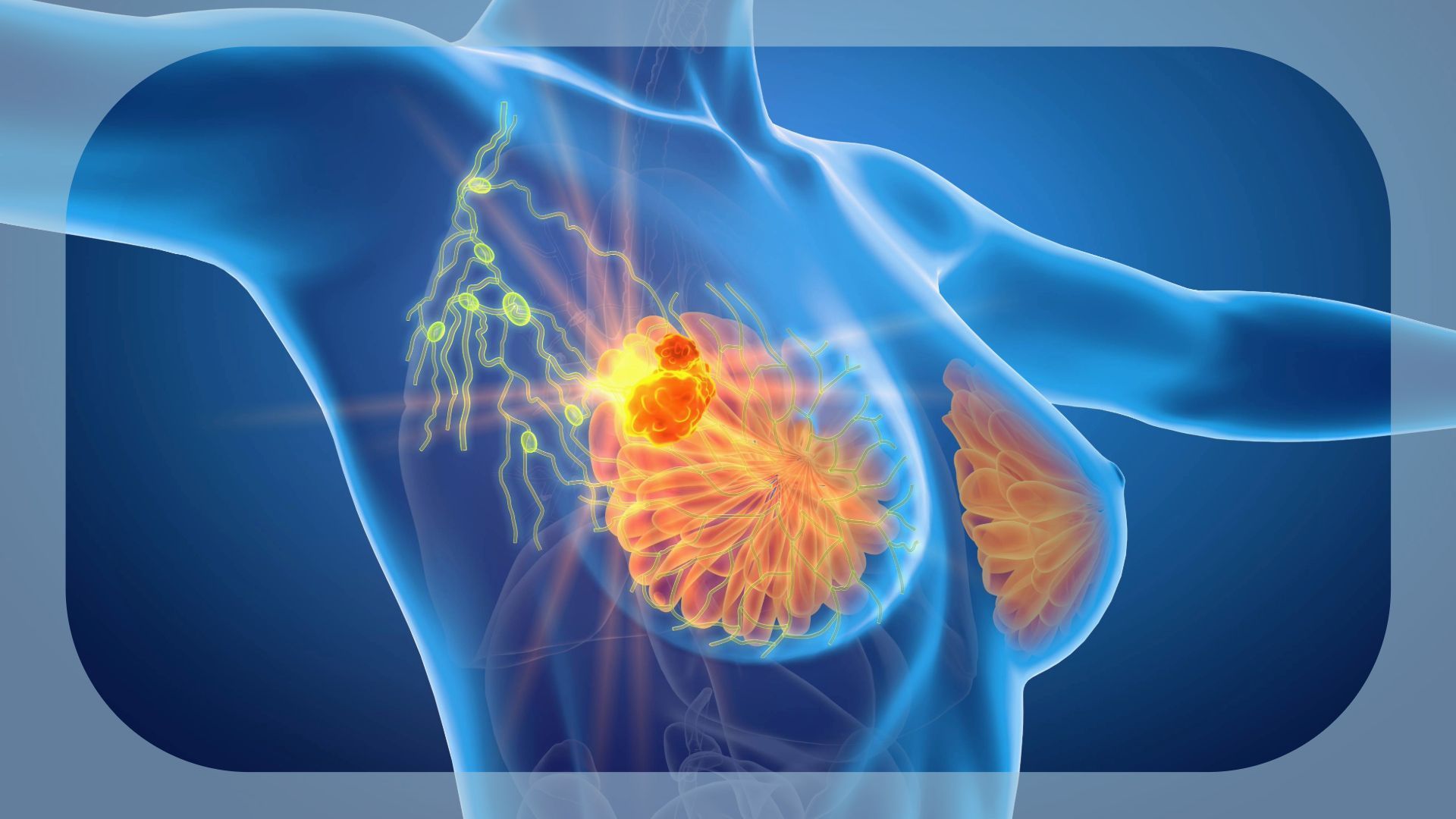Image Credit: © Axel Kock – stock.adobe.com
Treatment with the pan-PI3K and mTORC1/2 inhibitor gedatolisib (PF-05212384) generated clinical activity in patients with metastatic castration-resistant prostate cancer (mCRPC) and patients with metastatic HER2-positive breast cancer, according to data from 2 separate clinical trials evaluating the agent.1
Findings from the phase 1 portion of a phase 1/2 trial (NCT06190899) showed that patients with mCRPC (n = 36) treated with darolutamide (Nubeqa) in combination with gedatolisib at 120 mg (cohort 1) or 180 mg (cohort 2) experienced a 6-month radiographic progression-free survival (rPFS) rate of 66%. In this study, treatment-related adverse effects (TRAEs) did not lead to treatment discontinuation in any patients, and no patients required dose reductions of either agent due to TRAEs. No instances of grade 3 hyperglycemia were reported, and patients experienced grade 2/3 stomatitis at a rate of 10.5%.
“We are very encouraged by this preliminary efficacy and safety data,” Igor Gorbatchevsky, MD, chief medical officer of Celcuity, stated in a news release “The 66% 6-month rPFS rate for this novel combination therapy compares favorably to published data for androgen receptor inhibitors in this setting. With no treatment-related discontinuations and less than 3% of patients experiencing grade 3 stomatitis, we believe it is important to explore additional dose options for gedatolisib. Available gedatolisib pharmacokinetic data from other clinical trials in solid tumors suggests a relationship between efficacy and dose levels. Since this preliminary data indicates that the optimal gedatolisib dose for patients with mCRPC may not yet have been reached, the company amended the clinical trial protocol to enable exploration of additional doses in the phase 1/1b portion of this clinical trial to determine the recommended phase 2 dose.”
In a phase 2 study (NCT03698383), patients with pretreated, metastatic HER2-positive breast cancer harboring PIK3CA mutations (n = 44) administered the combination of gedatolisib and trastuzumab-pkrb (Herzuma) experienced an overall response rate (ORR) of 43% and a median PFS of 6.0 months (95% CI, 5.0-7.7). The median overall survival (OS) was 24.7 months (95% CI, 17.3-not applicable). Grade 3 hyperglycemia occurred in 1 patient (2.3%), and no patients discontinued gedatolisib due to TRAEs.
“The 43% ORR reported in patients who received at least 3 prior lines of anti-HER2 treatment for their disease is very encouraging and compares favorably to published data for other available therapies in this group of patients,” Gorbatchevsky stated. “The regimen was well tolerated, and no patients discontinued gedatolisib due to treatment-related AEs. While additional clinical studies are needed, this data suggests gedatolisib in combination with HER2 targeted therapy may be an effective and well tolerated therapeutic option for patients with HER2-positive metastatic breast cancer.”
mCRPC Trial Background
The phase 1/2 study is enrolling patients at least 18 years of age with histologically or cytologically confirmed adenocarcinoma of the prostate without a small cell component that is comprised of less than 10% neuroendocrine-type cells.2 Patients need to have progressive mCRPC with prior treatment with a next-generation androgen receptor signaling inhibitor in the metastatic setting. An ECOG performance status of 0 or 1, along with adequate bone marrow, hepatic, renal and coagulation function, is also required.
In phase 1, patients are receiving gedatolisib at 120 mg or 180 mg once per week for 3 weeks on and 1 week off in combination with darolutamide at 600 mg per day in 28-day cycles. Phase 2 will evaluate the recommended dose of gedatolisib in combination with the same darolutamide regimen. Safety and determining the recommended phase 2 dose are the primary end points of phase 1. The primary end point of phase 2 is rPFS.
HER2-Positive Breast Cancer Trial Info
This phase 2 study enrolled patients at least 19 years of age with histologically or cytologically confirmed diagnosis of HER2-positive breast cancer with suspected PI3K pathway dependence.3 At least 2 HER-2 directed therapies, including trastuzumab (Herceptin) in the metastatic setting, was required. Patients also needed to have at least 1 measurable lesion per RECIST 1.1 criteria, an ECOG performance status of 0 to 1, and adequate bone marrow and organ function.
All enrolled patients received trastuzumab-pkrb at 6 mg/kg on day 1 of each 21-day cycle following a loading dose of 8mg/kg in cycle 1 in combination with gedatolisib at 180 mg on days 1, 8, and 15 of every 21-day cycle.
ORR was the trial’s primary end point. Secondary end points included PFS and OS.
References
- Celcuity reports clinical data from two early phase studies of gedatolisib. News release. Celcuity. June 30, 2025. Accessed June 30, 2025. https://ir.celcuity.com/press-releases/?qmodStoryID=5588407709789214
- Gedatolisib in combination with darolutamide in metastatic castration-resistant prostate cancer. ClinicalTrials.gov. Updated March 21, 2025. Accessed June 30, 2025. https://clinicaltrials.gov/study/NCT06190899
- Phase II study of Herzuma plus gedatolisib in patients with HER-2 positive metastatic breast cancer. ClinicalTrials.gov. Updated February 18, 2021. Accessed June 30, 2025. https://clinicaltrials.gov/study/NCT03698383
